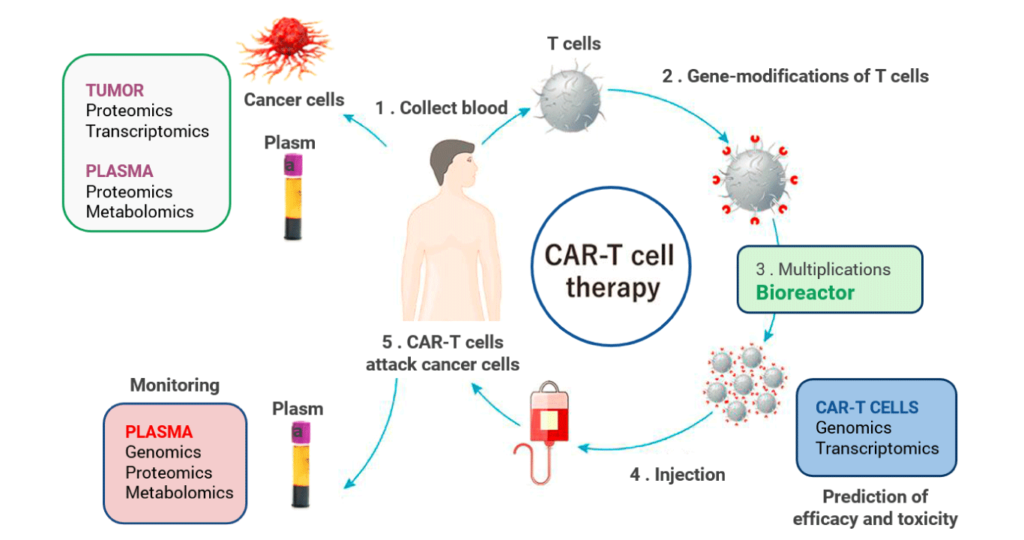Efficacy
A Revolutionary Paradigm for Evaluating CAR T-Cell Therapy Outcomes
An Integrated Next-Generation Approach Leveraging AI for Enhanced Efficacy Monitoring and Personalized Patient Response Analysis.
7Talos is using organ-on-a-chip (OOC) technology to verify the efficiency of fighting cancer using CAR-T. Organ-On-A-Chip technology allows us to create a miniature model of the CAR-T cell interactions with the tumor. This allows us to test different CAR-T cell designs and treatment strategies in a controlled environment.
By testing CAR-T cells on a patient’s own tumor cells, we can predict how well the CAR-T cells will work for that patient.



Our Organ-on-a-chip (OOC ) technology can be used to check the efficiency
of fighting blood cancer with CAR-T cells in the following ways:
Testing CAR-T cell efficacy
Once a model of the patient’s blood cancer has been created, CAR-T cells can be added to the OOC device and their ability to kill the cancer cells can be assessed. This can be done by measuring the number of cancer cells remaining in the device over time, by measuring the secretion of cytokines or enhanced cytotoxic activity.
Testing the efficacy of CAR-T cells in combination with other treatments
OOC devices could also be used to test the efficacy of CAR-T cells in combination with other treatments, such as chemotherapy or radiation therapy. This could be done by seeding OOC devices with cancer cells and then adding CAR-T cells and the other treatment to the devices. The number of cancer cells remaining in each device could be measured.
Modeling the blood cancer
Organ-on-a-chip (OOC ) devices can be used to create models of blood cancer by using patient-derived cancer cells. These cancer cells can then be used to seed Organ-on-a-chip devices, creating a model of the patient’s blood cancer.
Optimizing CAR-T cell therapy with Organ- on-a chip
OOC devices can also be used to optimize CAR-T cell therapy. For example, OOC devices can be used to test different CAR-T cell designs, such as different types of CAR-T receptors or different co-stimulatory molecules. OOC devices can also be used to test different culture conditions for CAR-T cells, such as different growth factors or cytokines

